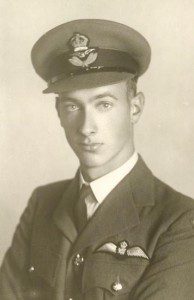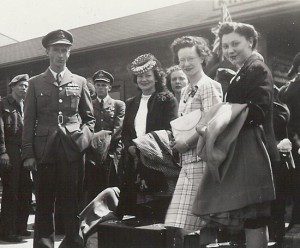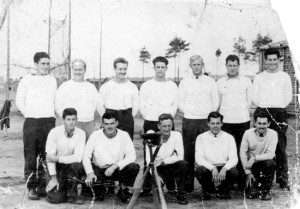
I’m sure my teachers taught it during a day I was absent from high school. But somewhere in there I missed that important life lesson that came from physics class.
“For every action in the universe,” Isaac Newton said around 1687, “there is an equal and opposite reaction.”
Well, it’s taken many more years than I spent in high school for me to discover the realities of that law. This fall, I published my book about the Second World War escape from a German prison camp in Poland by Commonwealth air officers on March 24, 1944. As my book’s title suggests, “The Great Escape: A Canadian Story” looks at the story that Hollywood got wrong in 1963. In my book I contend that the event was largely a made-in-Canada phenomenon. That’s the “every action” part of Newton’s law. The “equal and opposite reaction” part of the law has been the unexpected response from strangers.
Here’s part of a note I received this week from Stephen Sawford, who heard Michael Enright on CBC Radio’s “Sunday Edition,” interview me.
“I was listening with great interest,” Sawford wrote me. “You mentioned that Frank Sorensen, a Danish-Canadian, taught Roger Bushell (the leader of the escape committee) to speak conversational Danish.

“Frank Sorensen was a family friend and my dentist when I was growing up in Kingston. I knew that he was Danish, served in World War II, had been a POW, and that he had a ‘difficult’ personality. My immediate thought was that my Frank and the one you were talking about was one and the same person.
“Frank was an intense man and I now of course understand that he suffered from post-traumatic stress disorder and thanks to your book I have at least some understanding of why. By the way, he was an excellent dentist far ahead of many others at the time.”
Next, I heard from a Helen Poizner. She had attended a talk I gave in Flesherton, Ont., where I showed visuals collected through my research into the Canadian dimensions of The Great Escape.
“It was a full house, people mostly of a certain age who were enthralled with your presentation,” Poizner wrote me. “We heard interesting wartime accounts of Canadians who found themselves on the other side of the world in the extraordinary and difficult circumstance of being held in a German prisoner of war camp. So many years later, they found a place in your book bringing meaning and importance to their lives.
“As we listened to your presentation I looked across the table at our friends, Joan and Bill Lobban, and thought, ‘These two have a compelling wartime story that should also be told albeit in a different geographical area.’ Over the years I have heard bits and pieces of stories from my friend Joan, of living her childhood in a Japanese prisoner of war camp in Shanghai. As you know, all British nationals were imprisoned for the duration of the war and lived in some pretty nasty situations.”

Finally, among hundreds of other texts, phone calls, and emails these last weeks, here’s one from a 54-year-old air traffic contoller in Vancouver. The note from Rob McKay nearly took my breath away.
“One of the prisoners in that (same) Stalag was my Great Uncle, Tom (Tommy) Jackson,” McKay told me. “He is pictured (in your book) in the baseball team, right behind the bats. He is still very much alive and living in Abbotsford, British Columbia. As he approaches 99 years old, next July, a lot of the memories have started to fade. Some days much more than others.
“One Saturday evening at my Mom’s home in Abbotsford, years ago, during a hockey game, no less, Uncle Tom started talking about the war. As this was something that he very seldom did, we turned the volume down on the TV so we could hear him better and then eventually we turned it off. That’s just not done in Canada on a Saturday night!
“The stories he was telling were so real and he spoke with such conviction (the tears rolling down his cheek as remembered the friends, the “Brothers,” the people closest to him that he lost) was something that I will never forget.
“He was the Captain of a Halifax bomber that was shot down over northern Germany. He thought (his entire crew) had all got out of the airplane before he bailed out. He later learned that the tail gunner had forgot his parachute before they took off. He knew that if Tom found him, they would both try to use one parachute and would both die. So he hid in the back and died when the plane crashed.”
I emphasize again, that I knew none of these people. They were simply responding to some of my appearances and talks about this book. It’s taken me a lifetime to learn the physics of writing history.
Yours is a book I must read. I have been searching high and low to find out about a British first WW prisoner in Germany who learned physics from a fellow prisoner. I thought I read about it in Clarke’s “Einstein” but I can’t seem to find it in his book. Can you help me track it down. Google hasn’t helped. Thanks.Robert
This might interest you.
https://colinfranksorensen.wordpress.com/